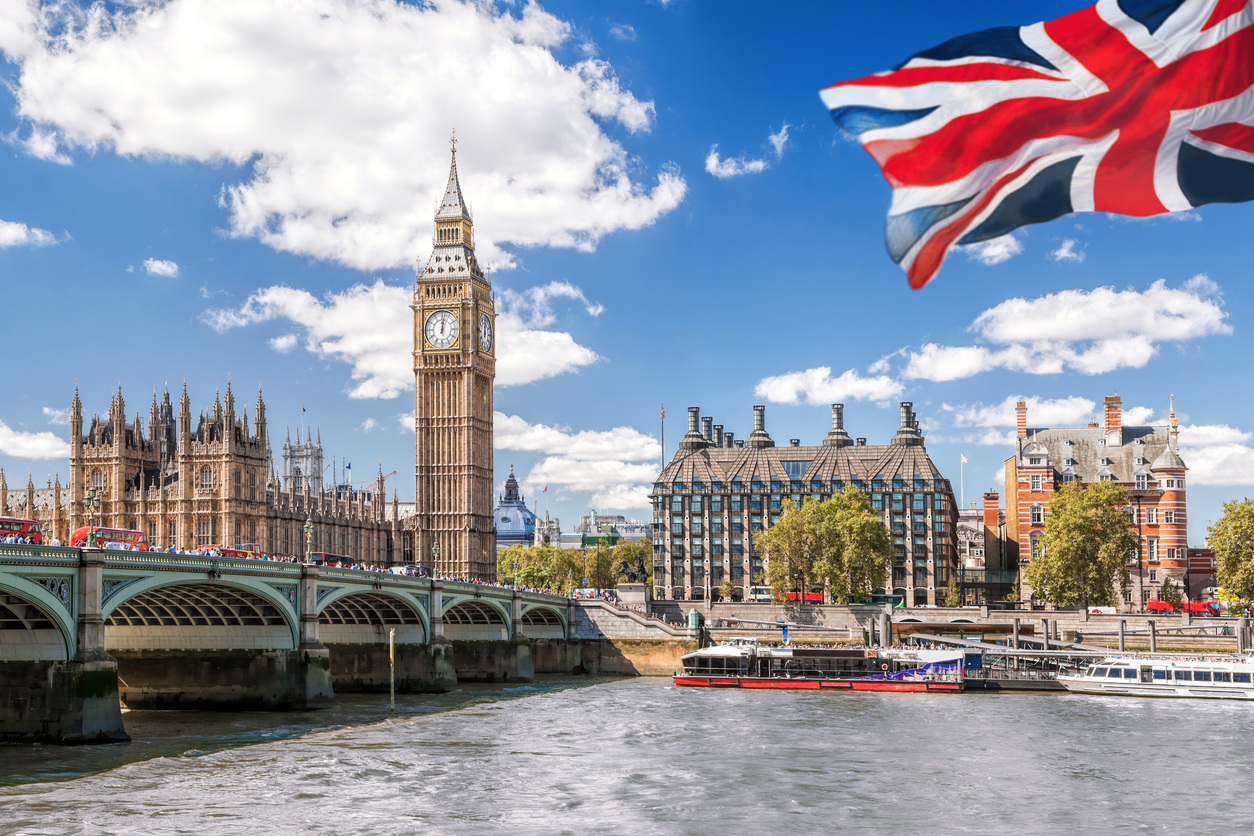Thinking about swapping Trader Joe’s for Tesco? The cost of living in the UK can be a pleasant surprise—or a minor shock—depending on where you unpack your suitcases. While London rent makes New York look like a bargain bin, a flat in Leeds or a cottage in Cornwall might leave you with enough leftover for an extra round at the pub.
Since the pandemic, prices have wobbled and so has the pound. But whether you’re comparing the local chippy to a NYC takeout joint, or just bracing for British heating bills, remember: “average cost of living” is just the opening act. Your wallet’s real story depends on your city, your habits, and how many imported snacks you absolutely can’t live without.
📋 Key Updates for 2025
- UK private rent inflation slowed to 6.3% in April, down from 7.2%, though rents remain significantly above general inflation.
- Energy price cap drops by 7% to £1,720 annually from July, easing pressure on household gas and electricity.
- Council Tax rises by around 5% in England’s 2025–26 fiscal year, bringing the average Band D bill to approximately £1,770–£2,280 depending on your area.
Housing costs: Monthly rent, deposits, and realities
If you’re moving to the United Kingdom, be ready for some sticker shock—especially if London is your new home base. The capital’s rent prices top the UK cost of living index, rivaling New York City for sheer audacity. A one-bedroom in central London? Easily £2,000 a month (and that’s before you’ve spotted the mold).
But there’s good news for anyone eyeing a different city. Move north to Manchester or Liverpool, or head to Edinburgh or Cardiff, and you’ll find far more reasonable rent—think £700 to £1,200 a month for a decent flat. Go suburban, or settle in a small town in Scotland, Wales, or Northern Ireland, and rental prices drop even further, leaving you extra room in your budget for Sunday roasts or a proper umbrella.
What’s included (and what’s not):
- Deposits: Usually five weeks’ rent, paid upfront.
- Council tax: A monthly must—think of it as property tax for renters.
- Utilities: Energy bills (ouch, especially in winter), water, and internet are rarely included.
- Landlord tariffs: Sometimes there are surprise “admin fees” or charges for pets—ask before you sign.
- Family of four vs. single: A family home with space for everyone can mean double or triple the costs of a city center studio.
💡 Pro Tip:
For international students and remote workers, many rentals now include flexible contracts and “bills included” offers—just double-check the fine print, and always factor in rising energy prices when you set your housing budget.
Utilities and energy: Tariffs and rising bills
If your U.S. friends think their electric bill is scary, wait until you see a winter statement from a UK energy provider. Thanks to shifting tariffs and the cost of living crisis, utility bills have become a hot topic (pun intended) across the United Kingdom—especially in major cities and older, draftier homes.
What to expect:
- Energy bills (gas and electricity) have soared in recent years, driven by global price shocks and inflation. Even with new consumer protections in 2025, many households now budget £150–£300 per month—or more in the most expensive places.
- Water and internet charges are usually separate. Water rates vary by region, and internet can feel pricey if you’re used to bundled U.S. deals.
- Tariffs come in many flavors—fixed-rate, variable, or “green energy”—and switching suppliers is common (and sometimes saves real money).
Tips for taming your bills:
- Direct debit payments can get you a small discount (and help avoid missed bill drama).
- Fixed-rate plans offer stability, but shop around annually—UK consumers are famously loyal, but the best deals usually go to new customers.
- Consumer protections now limit sudden, sky-high rate increases and guarantee help if you fall behind—so you don’t have to freeze in the name of frugality.
💡 Pro Tip:
When budgeting for the cost of living in the UK, always leave wiggle room for energy bills—they’re the wild card in your monthly expenses, especially for single people in chilly flats or families heating big Victorian homes.
Getting around: Transport costs in Great Britain
Whether you’re hopping on the Tube in London or eyeing a secondhand Mini for road trips to Wales, transportation plays a big role in the cost of living in the UK.
Public transport
In city centres, public transport is king (and usually cheaper than driving). Expect to pay £150–£200 a month for unlimited travel on the Tube, trains, and buses in London—less in Manchester, Liverpool, or Glasgow. Students and seniors get discounts, and “contactless” cards make paying for rides a breeze.
Driving and car costs
Thinking of driving? Here’s what to budget for:
- Fuel: Prices are high—think £1.50–£1.80 per litre (roughly $7–$8 a gallon).
- Insurance: Required, and often more expensive for new arrivals or expats.
- Parking: Can be tough and pricey in cities; much easier in the countryside.
- Regional differences: Driving is easier (and sometimes cheaper) outside city centres, especially in Scotland and Wales, but train service can be limited in rural areas.
How it stacks up
Compared to New York or LA, UK public transport is more reliable, but car ownership is often less practical (and less necessary). High fuel prices and city congestion charges make walking, cycling, or hopping on a bus the smarter (and thriftier) move for most expats.
💡 Pro Tip:
If you’re in a city, get an Oyster card (London) or regional equivalent for serious savings—and consider ditching the car unless you love parallel parking and petrol receipts.
Food prices and grocery bills
Your grocery bill in the UK depends on where you shop, how you eat, and whether you’re addicted to takeaway curry. Consumer prices are shaped by more than just Tesco price tags—think regional differences, supermarket loyalty, and the occasional craving for imported peanut butter.
Grocery staples
Basic items (bread, milk, eggs, veggies) are usually affordable, but prices can creep up fast for specialty or imported goods. Discount supermarkets like Aldi and Lidl help keep the monthly cost of food down, while M&S and Waitrose are the “treat yourself” end of the spectrum.
Eating out and takeaway
Grabbing lunch at a local café? Expect £7–£10. A casual dinner might run £15–£25 per person, while takeaway (fish and chips, curries, or pizza) is a thrifty lifesaver for busy nights—budget around £10 a meal.
Region and lifestyle
Where you live—and how you like to eat—makes a big difference to your food budget. Here’s how prices and habits stack up around the UK:
- London and the Southeast: Expect the highest prices—both for groceries and dining out.
- Northern England, Scotland, and Wales: Lower prices and bigger portions.
- Monthly food cost: Single person, £200–£300; family of four, £500–£900. Low-income shoppers rely on budget grocers and batch cooking; luxury lifestyles can double those numbers with organic treats and fine dining.
💡 Pro Tip:
Keep an eye on weekly specials and loyalty card deals—every supermarket runs them, and a little savvy shopping can slice your monthly food bill without sacrificing the good stuff.
Healthcare system: NHS vs. private expenses
Healthcare is one area where UK life can feel refreshingly affordable—at least for the basics. The National Health Service (NHS) covers primary care, hospital treatment, emergency care, and most maternity and pediatric services free at the point of use. As an expat with the right visa and the immigration health surcharge paid, you get access to all of this just like any local.
Here’s where you’ll pay out of pocket:
- Prescriptions: Around £9.90 per item in England, with many exemptions for kids, seniors, and some conditions.
- Dental and vision: NHS dental care is subsidized but not free—budget £26–£306 per treatment, and expect to pay for glasses and eye exams unless you qualify for help.
For extras—like private hospital rooms, shorter specialist wait times, or specific services not covered by the NHS—private health insurance is available, starting at about £60–£150 per month.
💡 Pro Tip:
Most expats use the NHS for day-to-day care and turn to private insurance only for faster appointments or extra comfort—leaving more room in your budget for the fun parts of UK life.
Education and childcare: Schooling costs in the UK
For families making the move, school and childcare costs are a big part of the financial equation. The UK offers a wide range of options—from free, high-quality state primary schools to private and international schools that come with price tags to match. And if you have little ones, nursery and childcare fees can be another major monthly expense.
State schools
Most expat families are pleasantly surprised to find that state schools are free across the UK for residents. Just budget for uniforms, supplies, and the occasional field trip.
Private and international schools
Tuition at private or international schools can rival U.S. prices: £15,000–£30,000 a year per child is common in major cities, and even more for boarding. International schools often offer American or IB curricula, but with hefty fees attached.
Childcare and nursery
Full-time nursery care for younger kids averages £1,000–£1,500 per month in London, less in other regions. Some government help is available—three- and four-year-olds often get 15–30 hours of free care weekly, depending on the region and your work status.
Regional differences
Costs can swing dramatically depending on where you live. While the cost of living in London tends to top the charts, other parts of the UK offer more budget-friendly options for both schools and childcare.
- London and the Southeast: Highest prices for both private education and childcare.
- Northern England, Scotland, Wales, Northern Ireland: Lower school and nursery costs, and sometimes more government-funded hours for young children.
💡 Pro Tip:
Apply early—popular schools and nurseries fill up quickly, and having paperwork in order gives you the best shot at your top choices.
Everyday living expenses: Phone, internet, and more
Beyond rent and groceries, plenty of smaller costs shape your monthly budget in the UK. Some are pleasantly affordable; others might leave you missing those unlimited U.S. phone plans.
Phones, internet, and TV:
- Mobile contracts start at £10–£30 per month, with pay-as-you-go options for light users.
- Broadband internet averages £25–£40 a month for a solid connection—faster speeds or bundled TV packages can push it higher.
- TV license: Watching live TV or BBC iPlayer? You’ll need a TV license (£169.50 a year), a uniquely British fee that still catches many expats off guard.
- Streaming services (Netflix, Disney+, etc.) are similarly priced to the U.S., around £8–£16 a month each.
Clothing, gyms, and leisure:
- High street shops (like Primark or H&M) keep clothing costs reasonable, while designer labels come with their usual markup.
- Gym memberships run £20–£60 a month, with fancier chains and boutique studios at the higher end.
- Pubs, clubs, sports, and memberships can add up, but there’s plenty of free or low-cost entertainment too—think parks, museums, and local festivals.
Living expenses and inflation
The cost of living crisis and a rising inflation rate have pushed up prices across the board. Everyday basics—everything from coffee to kids’ shoes—cost more than they did a few years ago, so it’s wise to pad your budget (and look for deals where you can).
💡 Pro Tip:
Bundle your broadband and mobile if possible, shop seasonal sales, and keep an eye out for free community events—they’re a great way to have fun and save pounds.
Taxes, VAT, and other hidden costs
Your UK paycheck comes with a few more deductions than you might expect, and some “hidden” fees can sneak into your budget if you’re not prepared.
Income tax and National Insurance
Both are automatically taken out of your pay. How much you pay depends on your income, but expect roughly 20%–45% for tax and another 8-12% or so for National Insurance (which helps fund the NHS, pensions, and more).
Council tax
Everyone pays this local property tax—renters included. It covers rubbish collection, streetlights, and more, and ranges from about £1,000 to £2,500 per year depending on where you live and your property size.
VAT (Value Added Tax)
Almost everything you buy—from your morning coffee to a new laptop—has VAT included in the price (usually 20%). It’s rarely advertised as a separate fee, but it’s always there, quietly boosting prices.
Other fees
- TV license: £169.50 a year for anyone watching live TV or BBC iPlayer.
- Parking: Permit and meter costs vary wildly by city and neighborhood.
- Local tariffs: Expect the odd admin fee, bin charge, or recycling levy to pop up—always double-check your bills.
💡 Pro Tip:
Before committing to a new home, check council tax bands, parking fees, and what’s included in your rent. Small costs add up fast, especially when you’re settling into UK life.
Regional cost differences: London vs. Liverpool, Scotland, and beyond
Where you live in the UK can make a huge difference to your budget and lifestyle:
- London: The UK’s most expensive city. Rent, transport, and everyday expenses are highest here, but you’ll also have the most career options and big-city excitement.
- Manchester, Liverpool, Birmingham: Large cities with lower rent and living costs than London, but with lots of culture, entertainment, and great public transport.
- Scotland, Wales, Northern Ireland: Major cities like Edinburgh, Glasgow, and Cardiff offer vibrant city life at a more affordable price. Smaller towns in these regions mean even cheaper rent and a slower pace.
- Suburbs and countryside: The most budget-friendly option—expect lower rents, more space, and peaceful surroundings, but be prepared for longer commutes and less nightlife.
💡 Pro Tip:
London is exciting, but it’s not the only game in town. Explore your options—there’s a UK location for every lifestyle and budget.
Tips for U.S. expats: Managing the average cost of living in the UK
Making your budget work in the UK doesn’t have to be a guessing game. Try these strategies to stretch your pounds a little further:
- Do your research: Use comparison sites like Numbeo to compare cities, rents, and grocery costs before you move. It’s the quickest way to spot price differences—especially if you’re eyeing London vs. Liverpool.
- Save on housing: Consider house shares, living a bit outside the city center, or negotiating “bills included” in your rent to cut monthly costs.
- Tame your utility bills: Choose direct debit payments for discounts, review your energy tariff annually, and switch suppliers if you find a better deal.
- Master public transport: Get an Oyster card (London) or a regional equivalent, and take advantage of railcards, bus passes, and discount schemes for regular commuters.
- Tap into community support: Join local expat or neighborhood groups—great for swapping budgeting tips, finding secondhand bargains, or discovering free events and activities.
- Budget for UK quirks: Factor in council tax, TV license, and other “surprise” fees that catch many newcomers off guard.
💡 Pro Tip:
Plan a realistic budget for your first three months—and give yourself some wiggle room. The UK’s average prices can move fast, especially with inflation, so a little buffer keeps things stress-free.
Crunching the cost of living—with less stress
Life in the UK means juggling new expenses, adapting to local quirks, and maybe developing a sudden loyalty to your neighborhood chippy. With smart planning, you’ll master your budget—and save your stress for the weather.
And if U.S. taxes are adding to your expat headaches, Bright!Tax is here to help. Reach out, and let us handle the IRS, so you can get back to enjoying the fun parts of UK life—like figuring out what exactly goes in a “ploughman’s lunch.”
Frequently Asked Questions (FAQs)
-
Is the UK more expensive than the U.S.?
It depends! London gives New York a run for its money, but most UK cities and towns are much more affordable. Where you live (and how you live) makes all the difference.
-
How much should I budget for rent?
In London, a one-bedroom flat can cost £1,800–£2,500 a month; in cities like Manchester, Liverpool, or Cardiff, expect £700–£1,200. Prices drop further in smaller towns and rural areas.
-
What about utility bills?
Budget £150–£300 per month for energy, more in winter. Water and broadband are usually extra. Shop around for deals—switching providers is normal here.
-
Is healthcare really free?
NHS primary care, hospital stays, and most emergencies are free for expats with the right visa, but you’ll pay for prescriptions, dental, and vision care. Private insurance is optional for extras or faster service.
-
How much does food cost?
Groceries for one person average £200–£300 a month; eating out is £7–£25 per meal, depending on your taste and postcode.
-
What hidden costs should I watch out for?
Council tax (local property tax), the TV license, and parking fees can surprise newcomers. Always ask what’s included in your rent.
-
How do I get around without breaking the bank?
Public transport is usually cheaper and easier than driving in UK cities. Get a railcard, Oyster card, or bus pass for discounts, and consider walking or cycling—just don’t forget your umbrella.
-
Is primary school free for expat kids?
Yes! State (public) primary schools are free for residents and eligible visa holders. Private and international schools can be pricey.
-
How does inflation affect daily life?
Prices for food, energy, and transport have risen in recent years. Build in a little budget buffer, and take advantage of deals, discounts, and secondhand shops.
-
What’s the best way to plan my UK budget as an expat?
Start by comparing costs in your target city, use online tools like Numbeo, and connect with local expat groups for real-life tips and savings strategies.

 Connect on LinkedIn
Connect on LinkedIn

